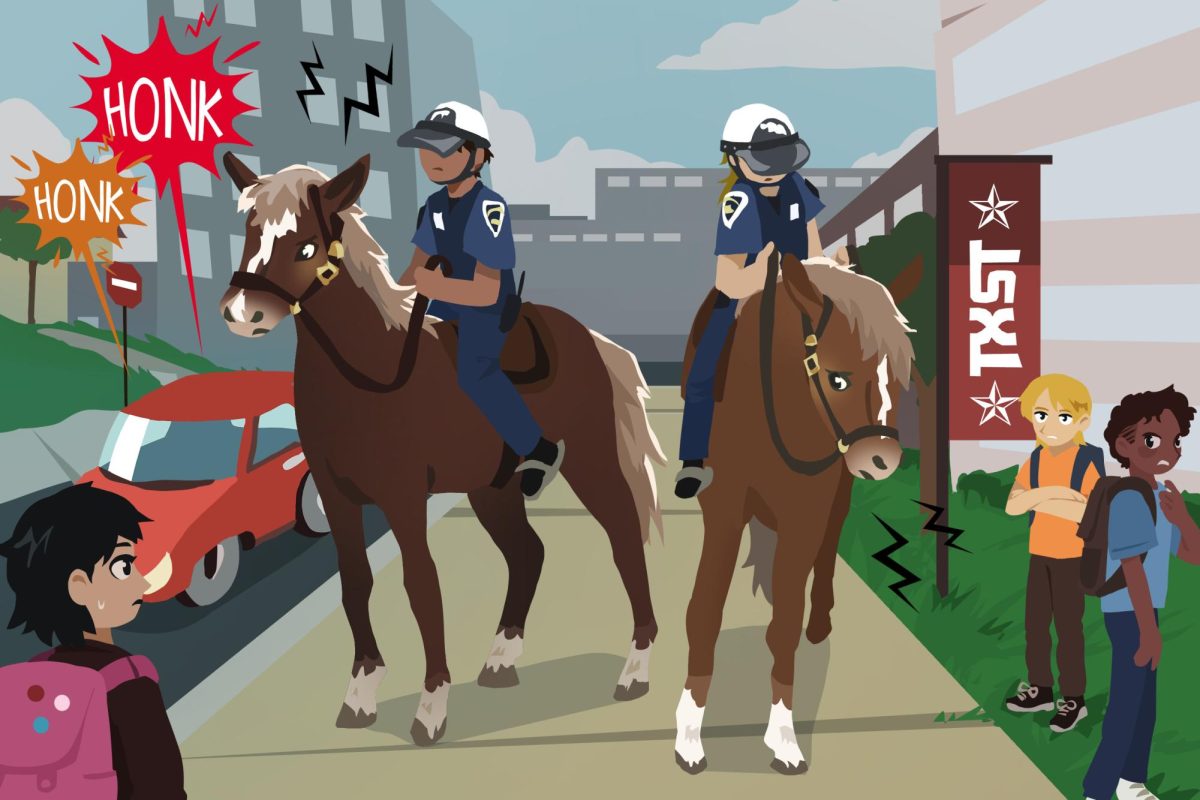A few years ago, I found myself enraged at a woman and her husband hoping to make a simple purchase. I was working at a bookstore at the time, and the two customers approached the counter holding the late chef Anthony Bourdain’s book.
I commented on how great of a chef he was. The woman then took it upon herself to correct my pronunciation of the word “chef”, spitting the four letters back out at me each time I mentioned Bourdain’s legacy. This was not the first time my slight accent had been corrected and shamed publicly.
Cultural assimilation, by definition, means to gravitate toward a dominant culture. While the U.S. hosts a large population of immigrants like me, we are often told to assimilate, blend in and succumb to the American lifestyle. Practicing one’s accent and doing the most to get rid of it is a form of cultural assimilation.
Cultural assimilation negates the existence of other cultures. It tells others they should be ashamed of their heritage, their upbringing and the way certain letters roll off their tongue when they speak in their native languages. What should be done, instead, is the blending of other cultures. A person should not erase one’s own identity for the sake of making others comfortable. A balance must be achieved, and total assimilation hinders progress toward this balance.
Take the experience of Carolina Quiñones Sariñana, a psychology sophomore, for example. In a Spanish dialect, the name Carolina flows naturally, but in dialects of English, people have issues with pronouncing it.
“I always have to say ‘Caroline’ or shorten it to ‘Caro’, and it can definitely get annoying,” Sariñana says. “And the fact that people just don’t even try at times to say it correctly… I get tired, and I remember even changing my own name; I would simply say Caroline at some points.”
Culture and heritage are badges worn proudly. One’s upbringing or name should not be silenced for the sake of making others comfortable. The U.S. is a nation that benefits greatly from its immigrants, and Texas State brands itself as a Hispanic Serving Institution.
With our diverse student body, hosting 493 international students, a multitude of cultures blend together to make the campus what it is. David Rodriguez, a political science junior, says that the blending of cultures is important for creating personal identity, citing back to Star Trek’s Borg group: A hive mind that forces other entities to assimilate into one, much like the assimilation that immigrants are told to undertake.
“I think holding on to the culture is very important for personal identity,” Rodriguez says. “There’s a group in Star Trek called the Borg. They’re basically these computer cyborg [kinds] of people, and whenever they encounter groups, they [make them] assimilate [to them] and become one entity. It’s a hive mind. Assimilation is kind of important for new immigrants, but not in a way that they need to abandon their culture.”
Rodriguez sees this abandonment present in the early 20th century during a period when Germans “suppressed their identities” after World War I and II due to the discrimination they faced. Consequently, they lost hold of their culture.
“A lot of German immigrants or descendants don’t have ties to that culture,” Rodriguez says. “They don’t understand the significance of it because they chose to suppress it, and I think, in the process of assimilation, a lot of Hispanics tried to do that because they want to fit in, and they lose their personal identity. And in the long run it, it may alienate their descendants or people.”
The loss of cultural language is another consequence Hispanic or Latinx youth may face due to the assimilation into American culture. As they learn English, their own native tongue often gets lost and forgotten, posing the risk of losing their fluency in their native language altogether.
Speaking two languages in the U.S. can bring forth a multitude of advantages — all of which, to say the least, can provide a higher quality of life and more professional opportunities.
“I’ve met a lot of Hispanic youth who don’t speak Spanish, and they feel, you know, like they’re outcasts from both, you know, the long-standing American dynasties,” Rodriguez says. “They feel like they have no place because they’re not quite fully American, but they’re not quite fully Hispanic. And so, when it comes to assimilation, I think what we have to assimilate into is American values. That being, you know, freedom, liberty, the belief that all are created equal, even if it’s not always shown in practice, those core values of Americanism need to be ingrained.”
Citing back to the Revolutionary War, Richard Vega, an economics senior, says that the blending of cultures is what makes the U.S. “work”. His belief comes from the history he has learned of the U.S. itself, relating colonial efforts to his modern-day assimilation observations.
“The United States doesn’t have a culture that is just rooted in one. There’s not a single root to it,” Vega says. “Even if we look at the colonies, they all came from different places, they all had different religious beliefs. They had different ways of doing things, different ways of thinking, depending on the country that they came from. Even after the Revolutionary War, every colony had different mindsets. What made the United States work was that we could tolerate, and we could work together. We could have different beliefs and different backgrounds, and still kind of work together for a common cause. And I believe that’s what assimilation is.”
History and the above accounts demonstrate that the U.S. has a diverse culture, all of which has been shaped by the immigrants that have touched upon American soil and brought their own beliefs, languages and traditions to share. It is important to adapt to some American traditions — but one’s own culture must shine through, as well.
International students need to continue to fight for the adequate representation of their own identities. Fight for peers and colleagues to pronounce names correctly, embrace your accents proudly and live freely in one’s own skin.
When those efforts come to fruition, students are able to thrive within the community and engage with it more fully. In Sariñana’s experience, even the simple act of student workers asking how her name was pronounced sent her over the moon.
“Of course, I learned to love my name and be proud of it, and I said, ‘Carolina,’ with a really strong accent,” Sariñana says. “They asked me how to spell it, and I didn’t get bothered at all — I just said it again and, not to sound cocky, but they said it’s a beautiful name.”
No person who comes from an ethnic background should be forced to adhere to a norm in fear of retaliation and racism.
Adhering to societal guidelines that subscribe to what is deemed “normal” for a country only hinders that country’s progress in diversity and inclusion efforts. With diversity campaigns and the topic of race relations becoming more prominent in day-to-day conversations, especially at Texas State, it is time the world practices what it preaches.
After all, immigrants are part of what makes communities great — and we are here to stay.
– Valeria Torrealba is a public relations senior
The University Star welcomes Letters to the Editor from its readers. All submissions are reviewed and considered by the Editor-in-Chief and Opinion Editor for publication. Not all letters are guaranteed for publication.
Opinion: Complete cultural assimilation invalidates diversity
May 19, 2021
Donate to The University Star
Your donation will support the student journalists of Texas State University. Your contribution will allow us to purchase equipment and cover our annual website hosting costs.

























